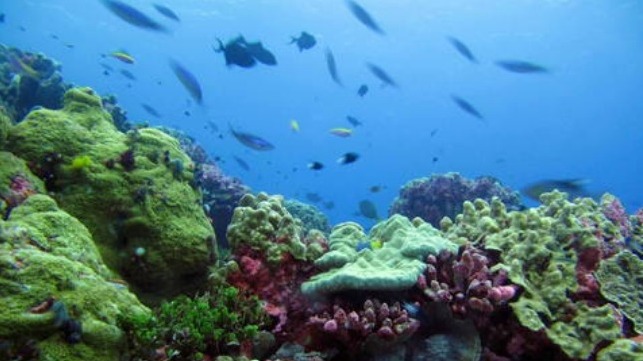Kiribati Terminates Giant Marine Protected Area to Boost Tuna Fishing

The government of the Pacific island nation of Kiribati is reportedly in discussions to open up one of the world’s largest marine reserves to commercial fishing.
The Phoenix Islands Protected Area (PIPA), spanning more than 115,000 square nautical miles adjacent to U.S. waters, could be de-registered as a World Heritage Site and made accessible to commercial fishing if the government's plan sails through.
According to an article by 1News, a New Zealand news outlet, the Kiribati Cabinet has already made the decision to open up the marine reserve and notified international partners two weeks ago. The cabinet says that the reason behind the radical move is to take advantage of over $200 million that could be generated per year from tuna fishing licenses in the marine reserve.
In 2008, Kiribati captured the global spotlight when it protected the planet’s last intact coral archipelago, which was threatened by over-fishing and climate change. The PIP marine reserve is almost the size of California, and it is home to more than 250 coral species and 520 species of fish - some of which are new to science. For environmentalists, the decision to open up the reserve will be a monumental setback in recent progress to regulate destructive human activities in fragile ecosystems.
Kiribati's decision comes at the same time as the COP26 climate conference, where activists are petitioning the world's governments to protect 30 percent of the global ocean. Marine Protected Areas (MPAs) such as PIPA are seen as the best way to reach this target, bolstering the potential of coastal ecosystems to capture and store atmospheric CO2.
Unless the Cabinet reverses its decision for opening up PIPA, Kiribati's parliament will move to repeal PIPA’s founding legislation, effectively de-registering it as a World Heritage Site.
Former President Anote Tong, one of the key individuals who were instrumental in creation of PIPA, said he was extremely disheartened to hear the news. “It’s a huge blow for conservation but I think it’s much bigger blow to our credibility as a nation,” said President Anote.
Equally saddened by the decision is PIPA Trust board Director Peter Shelley, who hopes the Cabinet will reverse the decision.
“The ability for any people to have confidence in working with Kiribati like this in future is going to be really diminished and that’s a real shame because there are very important partnerships that could be developed with Kiribati that have PIPA as the centerpiece," Shelley said.

that matters most
Get the latest maritime news delivered to your inbox daily.
There are undertones that China could have influenced the drastic decision. Since Kiribati restored its diplomatic ties with China in 2019, after ending recognition of Taiwan, Kiribati may become a gateway for China to access strategic Pacific waters historically dominated by the U.S. It may also offer China access to one of the world’s biggest exclusive economic zones, covering more than one million square nautical miles of the Pacific. This is an attractive proposition for China’s fishing interests.
Earlier this year, news emerged that China has drawn up plans to rehabilitate an airstrip and bridge on Kanton, one of Kiribati’s remote islands. It is 1,600 nautical miles southwest of Hawaii and uncomfortably close to US military interests in the Pacific.
